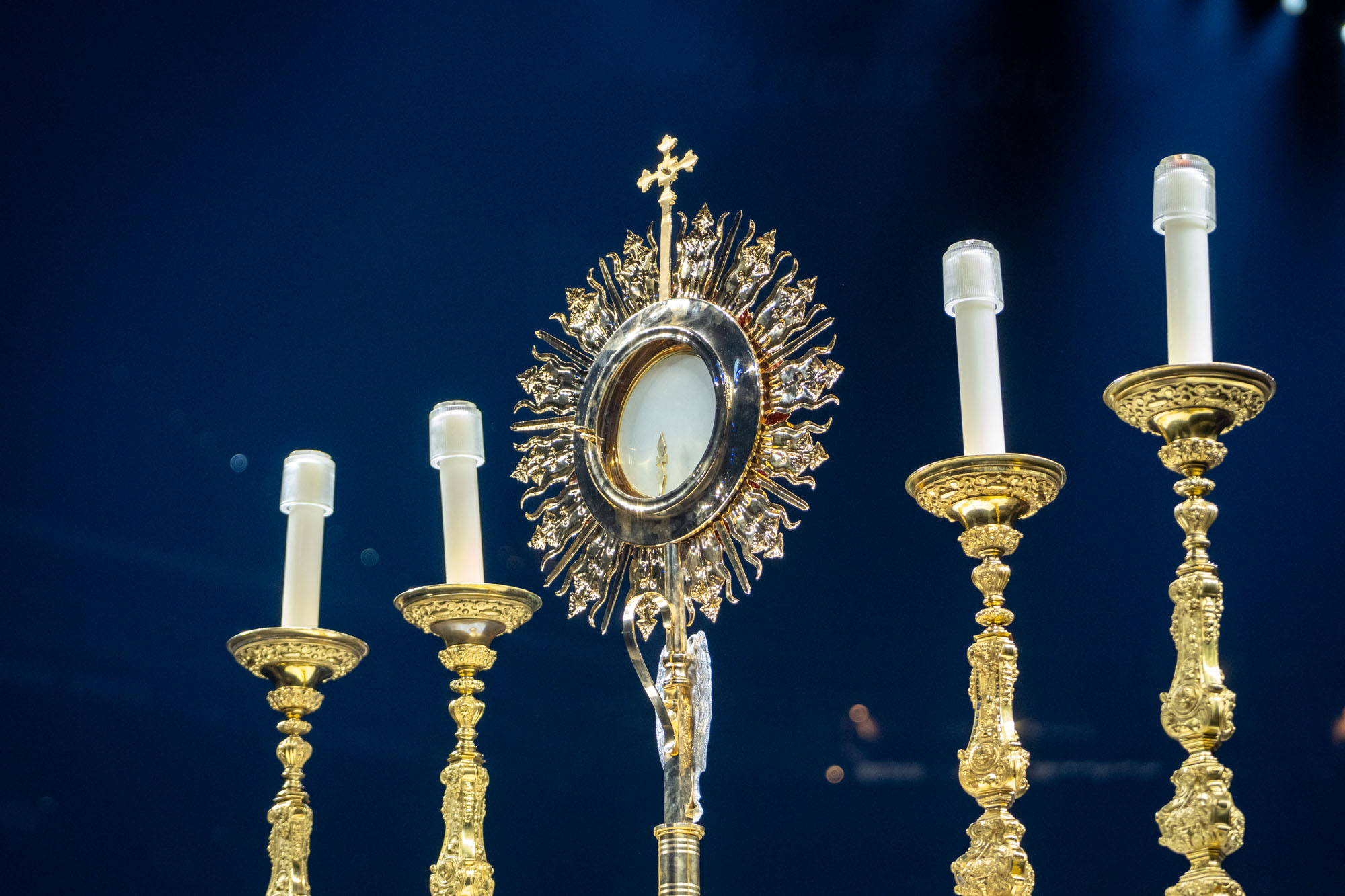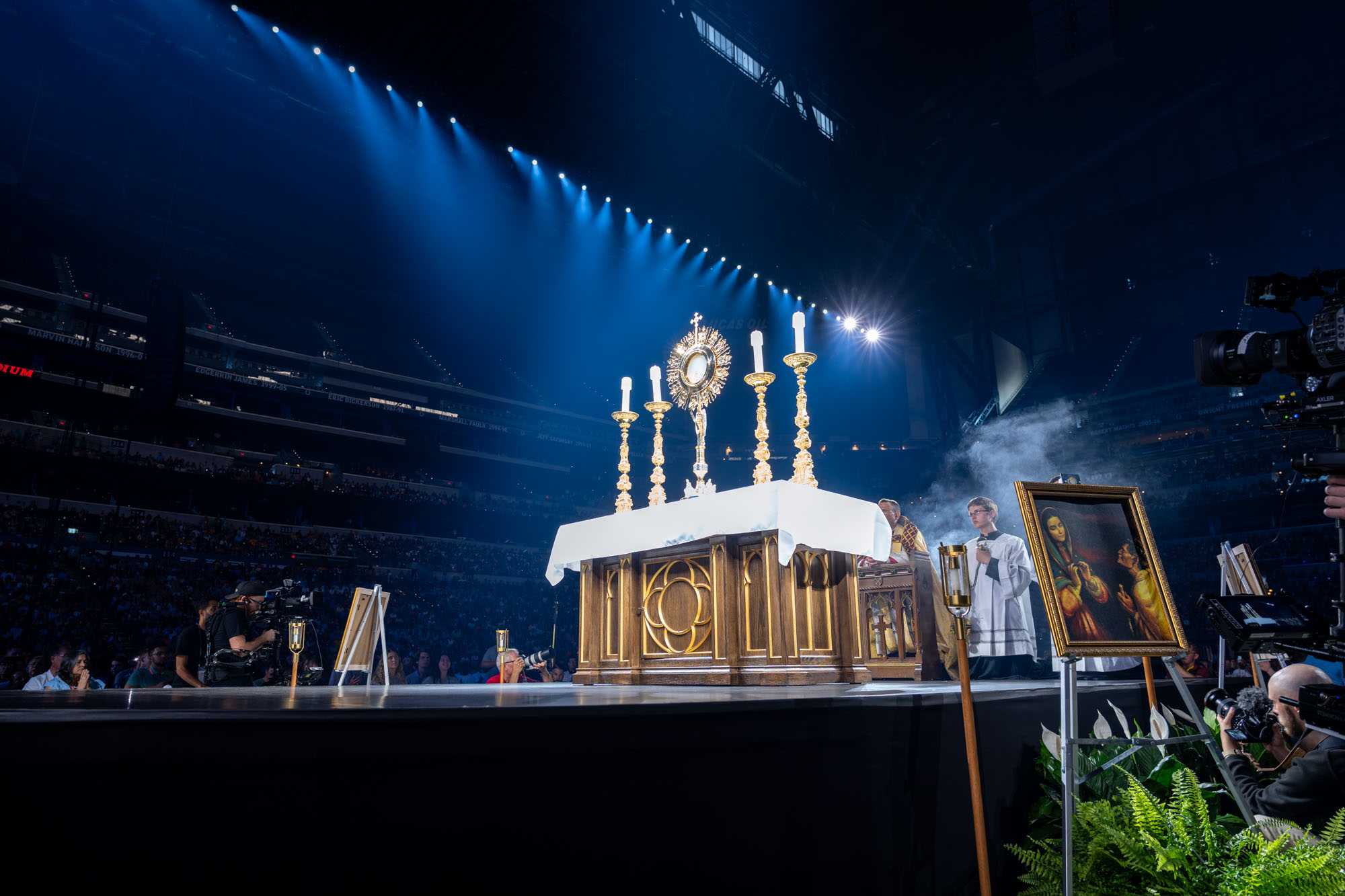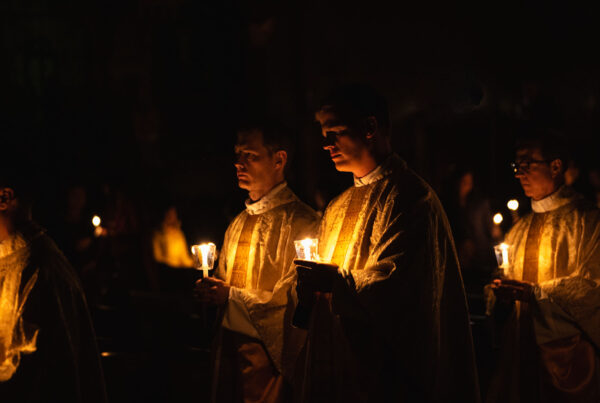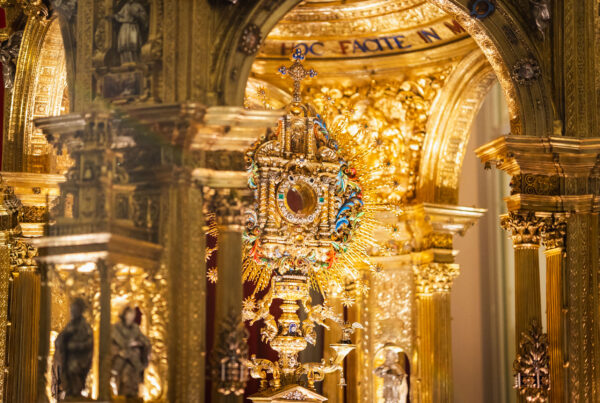The Catholic Eucharist, more often referred to as the Holy Eucharist, Blessed Sacrament, stands at the heart of Catholic worship and theology. It is celebrated as both a sacrament and a sacrifice, embodying the real presence of the Lord Jesus Christ under the appearance of bread and wine. This profound mystery is central to the faith and practice of the Catholic Church, serving as the source and summit of Christian life.
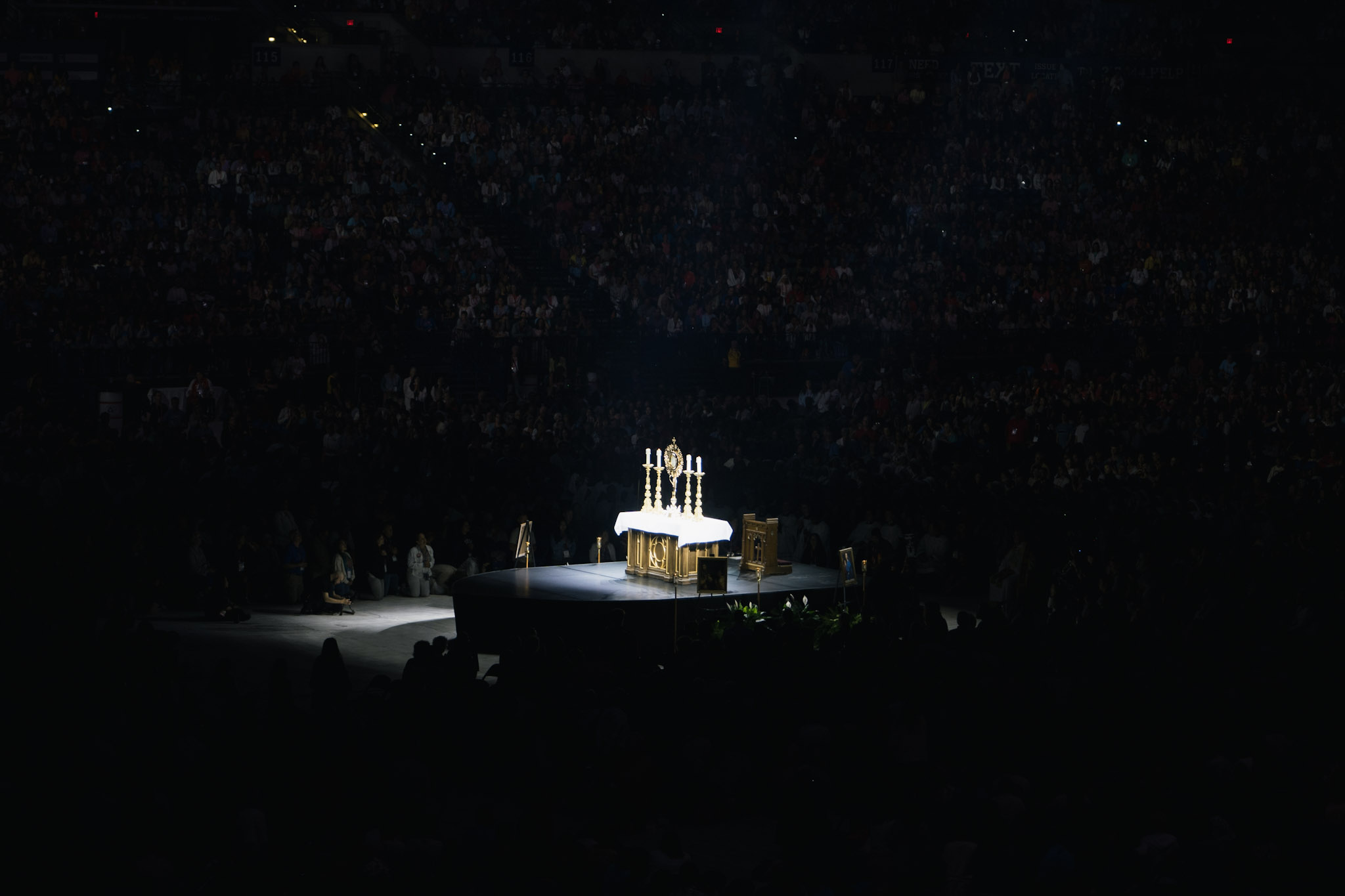
Eucharistic Adoration in Indianapolis
Origins and Biblical Foundations
The term “Eucharist” derives from the Greek word eucharistia, meaning “thanksgiving.” This nomenclature reflects the gratitude inherent in the celebration of this sacrament. The institution of the Eucharist is rooted in the Last Supper, where Jesus shared a final meal with His disciples before His crucifixion. During this meal, He took bread, gave thanks, broke it, and gave it to His disciples, saying, “This is my body.” Similarly, He took a cup of wine, saying, “This is my blood of the covenant, which is poured out for many” (Mark 14:22-24). These actions and words are recorded in the Synoptic Gospels (Matthew 26:26-30, Mark 14:22-26, Luke 22:14-20) and are foundational to the Church’s understanding of the Eucharist.
The Real Presence
Central to Catholic doctrine is the belief in the Real Presence of Christ in the Eucharist. This means that Jesus is truly present—Body, Blood, Soul, and Divinity—under the appearance of bread and wine. The Church teaches that through the process of transubstantiation, the substance of bread and wine is transformed into the actual substance of Christ’s body and blood, while the accidents (the sensory characteristics such as taste and appearance) remain unchanged. This teaching is grounded in Christ’s words at the Last Supper and has been consistently upheld throughout Church history.
The Eucharist as Sacrifice
The Eucharist is not only a sacrament but also a sacrifice. It re-presents (makes present again) the one sacrifice of Christ on the cross in an unbloody manner. During the Mass, the priest, acting in the person of Christ (in persona Christi), offers the bread and wine, which become the body and blood of Christ, to God the Father. This sacrificial offering is a participation in the eternal sacrifice of Jesus, making its saving power present to the faithful.
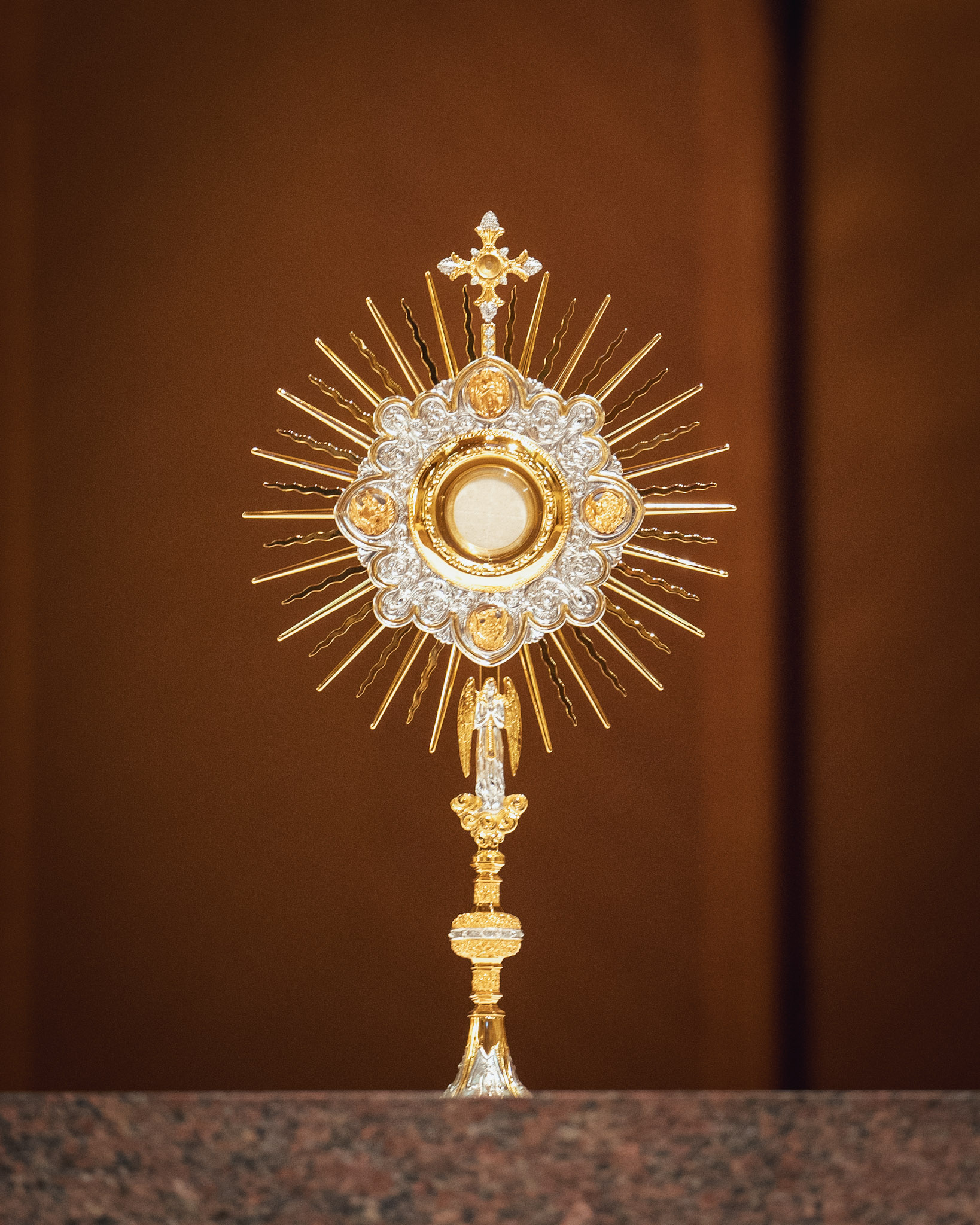
Holy Sacrament in Holy Name Cathedral in Chicago
The Eucharist as Communion
Receiving the Eucharist, also known as Holy Communion, unites the faithful more closely to Christ and one another. As St. Paul writes, “Because there is one bread, we who are many are one body, for we all partake of the one bread” (1 Corinthians 10:17). This communion signifies and affects the unity of the Church, the Body of Christ. It nourishes the soul, strengthens the bonds of charity, and commits the faithful to the poor and to the mission of the Church.
Preparation and Reception
The Church teaches that to receive the Eucharist worthily, one must be in a state of grace, meaning free from mortal sin. This requires regular participation in the sacrament of Reconciliation (Confession) for the forgiveness of sins. Additionally, the faithful are encouraged to observe a Eucharistic fast, traditionally abstaining from food and drink (except water and medicine) for at least one hour before receiving Communion. This practice fosters reverence and prepares the heart to receive Christ.
Would you like to stay close to the Holy Eucharist all day long?
Now you can, I have 8 Holy Eucharist Wallpapers for you, so you can stay connected with Jesus Christ anywhere you are!
The Eucharist in the Life of the Church
The Eucharist occupies a central place in the liturgical life of the Church. The celebration of the Mass, which includes the Liturgy of the Word and the Liturgy of the Eucharist, is the primary form of worship in the Catholic tradition. The Second Vatican Council described the Eucharist as “the source and summit of the Christian life,” emphasizing its importance in the spiritual life of believers. Through the Eucharist, the Church is continually built up and renewed, drawing strength for its mission in the world.
Eucharistic Devotions
Beyond the celebration of the Mass, the Church encourages various forms of Eucharistic devotion. These include Eucharistic adoration, where the faithful spend time in prayer before the Blessed Sacrament exposed in a monstrance; Benediction, a service in which the priest blesses the congregation with the Eucharist; and Eucharistic processions, which publicly honor the presence of Christ in the Eucharist. These devotions deepen the faith of believers and foster a greater love for the sacrament.
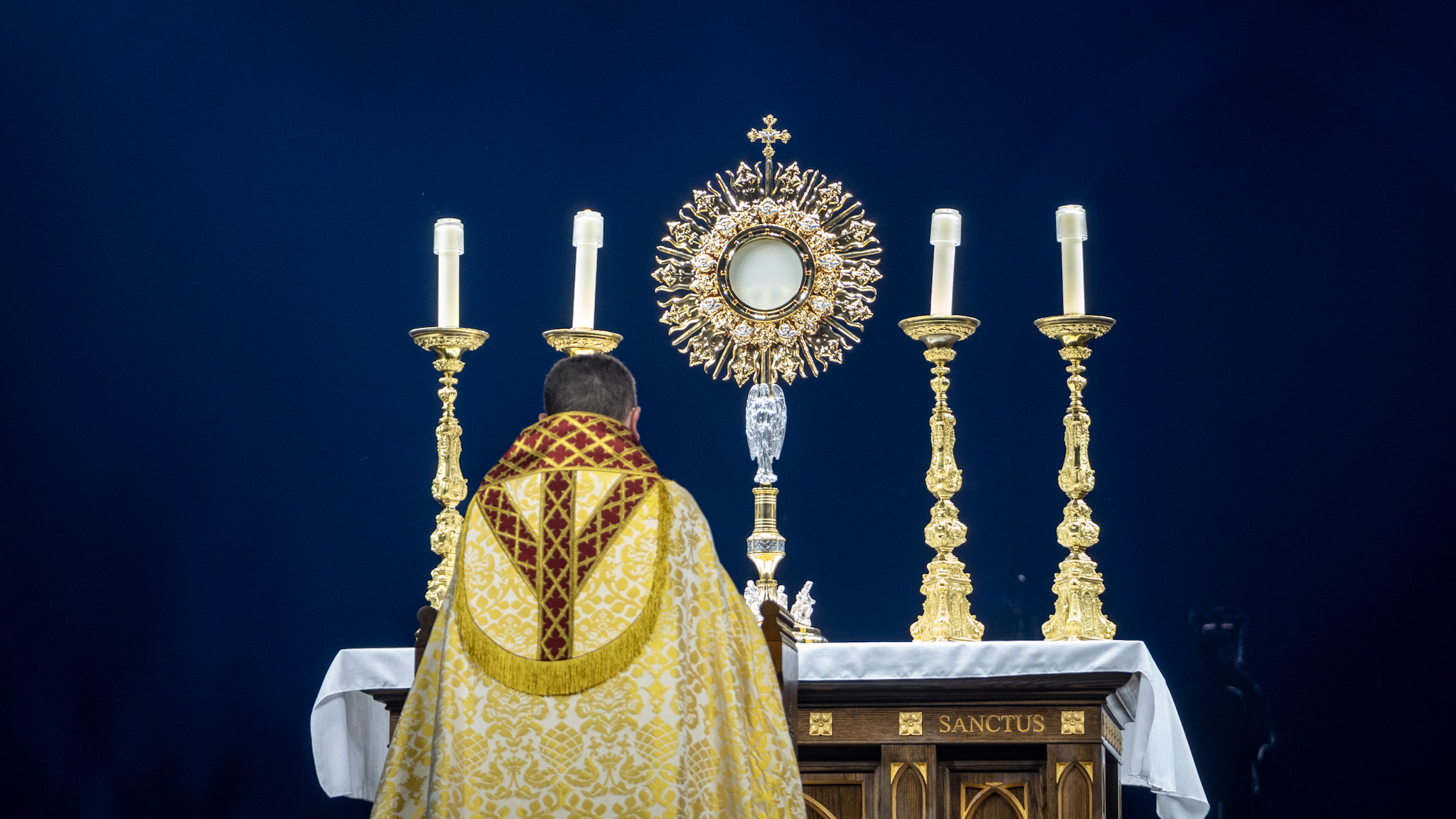
Eucharistic Adoration
Theological Reflections
The mystery of the Eucharist has been a central theme in theological reflection throughout the history of the Church. Church Fathers, such as St. Augustine and St. Thomas Aquinas, have written extensively on the nature of the Eucharist, exploring its significance as a sacrament of unity, a memorial of Christ’s passion, and a foretaste of the heavenly banquet. The Church continues to draw upon this rich theological tradition to deepen the understanding and appreciation of the Eucharist among the faithful.
Contemporary Challenges and Renewal
In recent times, the Church has faced challenges related to the understanding and reverence for the Eucharist. Surveys have indicated a decline in belief in the Real Presence among Catholics. In response, initiatives such as the National Eucharistic Revival in the United States have been launched to renew and deepen faith in the Eucharist. These efforts include catechesis, increased opportunities for Eucharistic adoration, and events like the National Eucharistic Congress, aimed at fostering a renewed love and understanding of this central mystery of faith.
Conclusion
The Holy Eucharist is the heart of Catholic faith and worship. It is the sacrament of Christ’s real presence, the memorial of His sacrifice, and the means of intimate communion with Him and with the Church. Through the Eucharist, believers are nourished spiritually, united as one body, and empowered for mission in the world. As the source and summit of Christian life, the Eucharist continually draws the faithful into deeper union with Christ and with one another, sustaining the Church on its pilgrim journey toward the fullness of the Kingdom of God.
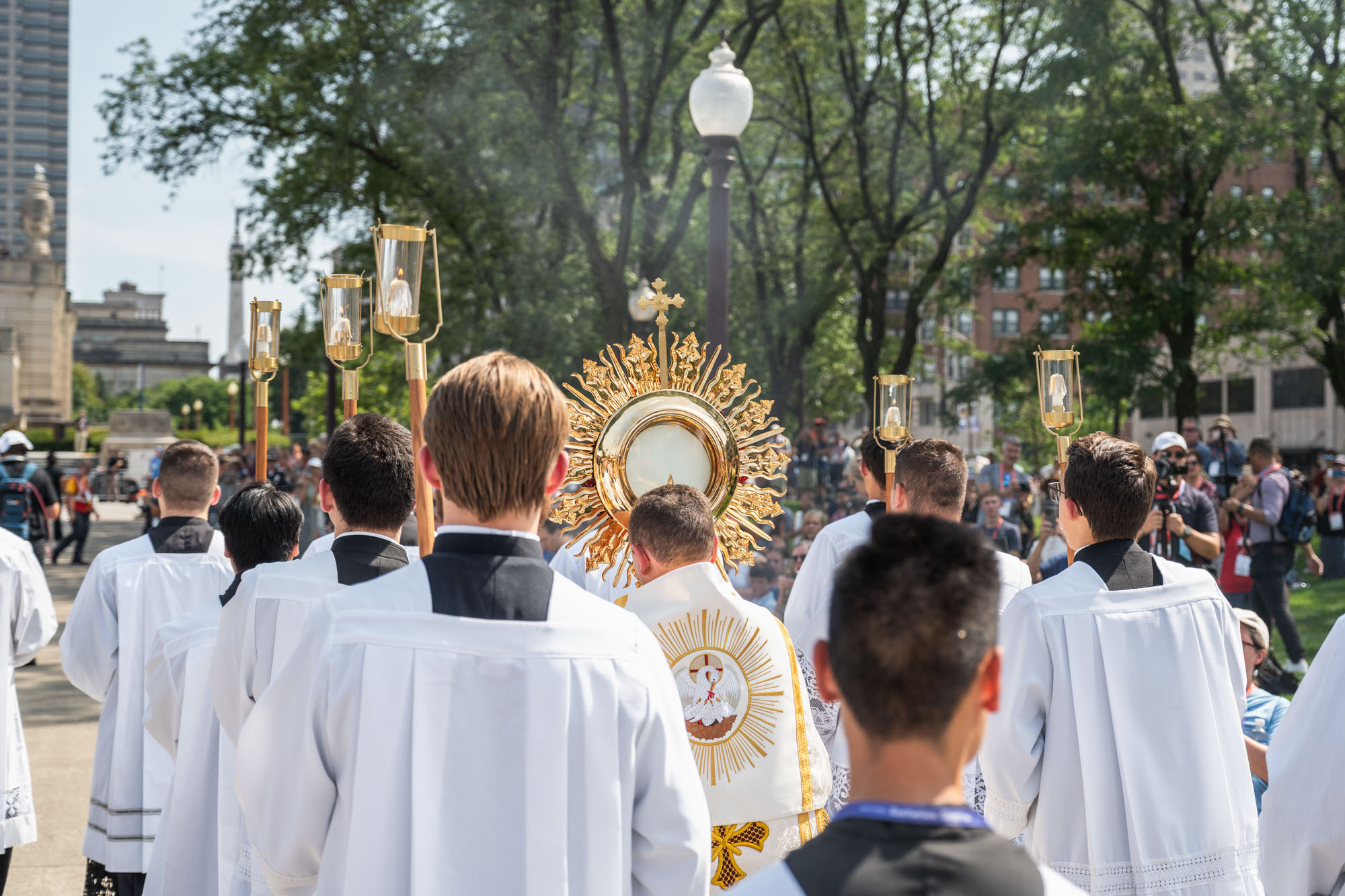
Eucharistic Procession during National Eucharistic Revival
Resources:
1. https://www.catholic.com/tract/eucharist
2. https://www.usccb.org/eucharist
3. https://www.vatican.va/archive/ENG0015/_INDEX.HTM

